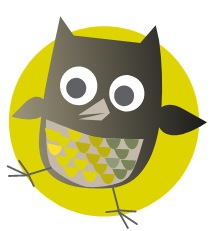There has been much in the news recently about the increasing numbers of children in England who are starting school without the language skills expected for their age. Perhaps the most stark research finding is the link between early language skills and life chances.
One in four (23%) children who struggle with language at age five do not reach the expected standard in English at the end of primary school, compared with just 1 in 25 (4%) children who had good language skills at age five.1 At Oxford University Press, we partnered with the National Literacy Trust and the All Party Parliamentary Group on Literacy to publish a report that highlights this link between children’s early language skills and life chances.
The report, called Language unlocks reading, also draws together best practice on how teachers and nursery workers can help young children to develop early language skills. But many of the report’s suggestions are simple things that parents can do at home. Here, we have pulled together a few ideas that you could try with your child to boost their communication, language and reading skills.
1. Take it in turns to talk
Parents have long been advised to talk to our babies and young children as early and as much as possible. But research has found there is a particular benefit in turn-taking in conversations between adults and children. A recent study showed that children who were given lots of turns to talk in conversations with adults had increased spoken language skills and greater brain activity.2
2. Say things in different ways
It goes without saying that parents talk to their children all the time. But research with very young children shows that if we use richer language, children’s vocabulary increases dramatically3 (e.g. instead of ‘Pick that up and bring it over here’, say ‘Walk slowly to the kitchen, carefully pick up the fork and return it to me’). Try using alternative words for the same thing – instead of saying ‘it’s hot’, say ‘it’s scorching’ or ‘it’s blistering’ or ‘it’s sizzling’.
3. Sing and rhyme
Songs and nursery rhymes are a brilliant way to build a child’s vocabulary and give them a love of language. Nursery rhymes also help children to learn about the features of stories – characters, structure, setting, and so on. If you are stuck for ideas, have a look at the BBC’s library of nursery songs and rhymes.
4. Read together every day
By listening to stories, children hear and learn words that we don’t tend to use as much in everyday conversation. It’s a great way to build their vocabulary and help them to develop a love of books. For a bit of variety, try listening to audio books in the car or take a look at some of the free eBooks on Oxford Owl.
5. Talk about the story
When your child is old enough, talk about the story together. You could talk about the pictures, ask questions about what is going to happen next, or discuss how a character is feeling. This all helps them to build their language, literacy and reading skills.
6. Let your child be the storyteller
Why not let your child tell the story? It is often said that if you read your child one book a day, then they will have heard over 1800 books by the time they are five. But it doesn’t have to be a different book every day. We all know how much children love to hear favourite stories over and over again! Ask your child to retell a well-loved story to you for a change, in their own words. Research has shown that this not only builds their language skills, but also their confidence and enthusiasm for storytelling.4
Don’t panic!
You can easily check your child’s language development in the first 5 years, using the What to expect, when? guide, produced by the Department for Education and 4Children.
If you have any concerns about your child’s language development you could talk to your local children’s centre, your child’s key person, a childminder or health professional.
More from Oxford Owl
- Blog post: The wonder of words: How learning new words can help your child >
- Blog post: The word gap: How to build your child’s vocabulary at home >
- Blog post: Early years: Getting ready to write >
- Blog post: Cerrie Burnell’s top tips for reading bedtime stories >
- Website: Starting to read (Age 4–5)
- YouTube playlist: Story time
- Ainscow et al (2012) An Evaluation of The Communication Trust’s ‘Talk of the Town’ Project. Centre for Equity in Education, University of Manchester.
- Romeo R., Leonard J., Robinson, S., West, M., Mackey A., Rowe, M., & Gabrieli J. (2018) Beyond the 30-million-word gap: children’s conversational exposure is associated with language-related brain function. Psychological Science 29(4) February 2018.
- David Reedy explores this study in Why the Word Gap Matters: Oxford Language Report, page 1.
- Nicolopoulou, A. ‘Promoting oral narrative skills in low-income pre-schoolers through storytelling and story acting in Cremin’, T et al (2017) (eds) Storytelling in Early Childhood: Language Literacy and Classroom Culture. Routledge, London.

